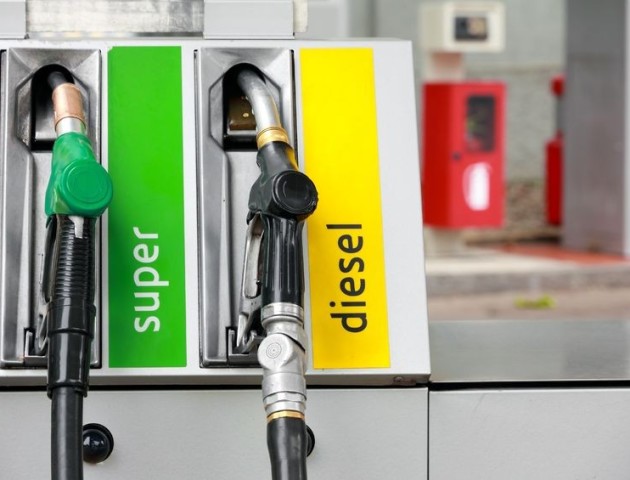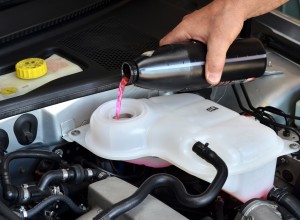
Density of diesel fuel

Diesel fuel (diesel fuel) is an oil product, which is actively used as the main fuel for a diesel internal combustion engine. Diesel fuel is obtained by distillation of oil. The composition and quality of such fuel has a number of requirements in accordance with certain standards.
The density characteristic of diesel fuel is a parameter, which determines the effective performance of this type of fuel in different temperature conditions. Fuel density is the amount of its mass in kilograms, which can fit in one cubic meter.
The density of diesel fuel is not constant, as it depends on the temperature. Increasing the temperature of the fuel leads to a decrease in its density. To measure the density of diesel (specific weight of diesel fuel) a special device is used, which is called a hydrometer.
We also recommend reading the article on the correct choice of additives in diesel fuel. In this article you will learn about the main criteria in the process of selecting antigels during the winter operation of a diesel car.
The density of the measured fluid is equal to the ratio of the mass of the hydrometer to that volume, on which the device is immersed in liquid. Hydrometers are devices of constant volume / constant mass. There are suitable hydrometers for different liquids. To measure the density of diesel fuel, requires a hydrometer for petroleum products such as AN, ANT-1 or ANT-2.
The hydrometer is a device for measuring the density of liquids. Most often it looks like a glass tube, at the top of which is the scale of density values.
Extremely high fuel density means, that it contains more heavy factions. For normal operation of the diesel engine, the presence of heavy fractions is a negative aspect, as evaporation and sawing processes in the combustion chamber of the internal combustion engine deteriorate. In the fuel system and the diesel cylinders themselves from driving on such fuel gradually accumulate deposits and soot..
In accordance with current standards according to GOST:
- density of annual diesel fuel - 860 kg / m3;
- density of winter diesel fuel - 840 kg / m3;
- density of arctic diesel - 830 kg / m3;
The above fixed figures imply the same temperature of diesel fuel on the mark +20 WITH, since the density of diesel fuel directly depends on the fuel temperature. On the basis of GOST it becomes clear, that the density of diesel fuel is dependent on both temperature, and from a specific brand of DT. Winter diesel has a lower density compared to summer diesel. The lower density of diesel fuel for winter allows this fuel to maintain fluidity and resist solidification at low temperatures.
As for the specific weight of diesel fuel, then by the standards:
- summer diesel fuel should have a share of up to 8440 N / m3;
- winter diesel has a share of up to 8240 N / m3;
It turns out, that weight 1 liters of diesel fuel can be from 830 to 860 grams, which will depend on the brand of diesel fuel by season and temperature. The higher the temperature of the diesel fuel, the less weight it will have 1 liter of such fuel.
Taking into account the quality of fuel, the change in diesel temperature by 1 degrees Celsius will change its density by 0,00075. The specified coefficient allows to carry out calculations of size of density of diesel fuel in relation to these or those temperature indicators.. It is worth considering, that it is possible to calculate the density of exclusively pure fuel.
The exact density of diesel fuel at gas stations based on this factor is more difficult to determine, as it is necessary to take into account the amount of additives and impurities in the DT. Moreover, the composition of such impurities in the final product at gas stations is often unknown, which greatly complicates any recalculation.
Why is the consumption of diesel fuel higher in winter?
The density characteristic of diesel determines not only the threshold of its solidification and freezing. DT density also indicates the amount of energy, which emits fuel. A higher density means more energy, emitted during combustion in the working chamber of the diesel engine. The higher the density of diesel fuel, the greater the efficiency of the engine. Additionally, the density will affect the consumption of diesel fuel 100 km. A denser DT in the fuel tank significantly increases engine efficiency.
Winter or arctic diesel fuel for diesel engines is always less dense. To release energy and get the necessary return from the power unit will need to burn more diesel fuel compared to denser fuel, which is used in the summer. This explains the increased consumption of less dense diesel fuel in winter.
We also recommend reading the article about it, What shall I do, if the diesel engine does not start well in winter. In this article you will learn how to start a diesel in the cold, and also find answers to questions, why the diesel engine does not start "cold".
The use of annual diesel fuel to increase the efficiency of the diesel unit is not allowed. Annual diesel fuel contains not only basic hydrocarbons, which provide energy during combustion, but also paraffins in the dissolved state. The decrease in temperature causes the beginning of active paraffinization of fuel, when the fuel loses its fluidity and turns into a gel.
Paraffin is not allowed to efficiently pump diesel fuel through the power supply system of the diesel engine, clog fuel lines and fine filters. For this reason, additional components are added to diesel fuel for winter. The main task is to prevent gelation and freezing of paraffins by adding special additives. Such additives in the production process increase the freezing point of diesel fuel, but the density of DT has no effect.
It is a mistake to believe, that if the "summer" diesel is filled in a tank and independently add an additive-antigel, then it will avoid solidification of fuel. First, additives are not able to affect the already frozen diesel fuel, as thickened paraffin it is not able to dissolve. Others, additives in diesel do not affect its density, since their mechanism of action on fuel is different. Antigels in diesel fuel only prevent the process of active waxing.
Diesel with lower density has better fluidity. It turns out, that even at low temperatures diesel fuel will pass freely through the fuel line, without creating traffic jams. For this reason, DT with a lower density is used for winter. In the warm season, the characteristic of the density of diesel fuel is not of paramount importance. For summer diesel, the main indicators are the degree of sulfur content and cetane number.
How to check the density of diesel fuel
Owners of diesel cars are recommended to refuel at gas stations, where winter or arctic diesel fuel is guaranteed to be sold. The need to check the density of diesel fuel "in the field" may arise then, when you doubt the quality of diesel fuel when refueling at untested gas stations.
It is better to check the density of DT on your own at a temperature of -10C and more. To check the density of diesel fuel, it is necessary to pour a small amount of fuel on a metal surface. Next you need to pay attention to the turbidity and fluidity. If the diesel drains normally and does not solidify, then you can refuel. If there are signs of turbidity and decreased fluidity, then such refueling should be abandoned. High-quality winter diesel fuel freezes at a temperature of about -45C Celsius.
For a quick analysis, you can also get a refueling gun and assess the condition of the fuel droplets at its end. Diesel fuel should not solidify. It is also desirable to partially refuel the diesel, that is, mix previously tested diesel fuel in a tank with fresh. To do this, it is recommended to always keep half of the fuel tank full in winter.
You can more accurately check the density of diesel fuel as follows. Diesel fuel is poured into a small container and then placed in the conditions, where the air temperature is at about + 17-20 degrees at such a time, to warm the fuel to a similar temperature. Next, the density of the diesel is measured using a hydrometer. The data obtained should be compared with those standards, which according to GOST must be purchased purchased diesel fuel.




